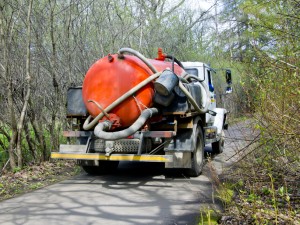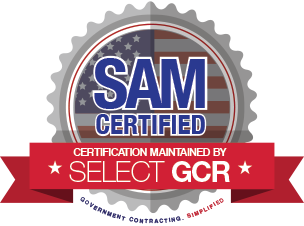New Installation Process
There are basically two types of septic systems, in ground (also known as basic or conventional) and advanced systems. Determining which type of system is best for your property is determined by the results of a percolation test, which is performed by an engineer, land surveyor or soil classifier.
Basic System
A basic septic system is designed for areas with soil that percolates well. The system is comprised of an underground septic tank, a filter and risers to grade, which then feeds into a leachfield (also known as field lines). A normal septic tank for a residence ranges in size between 1,000 and 1,500 gallons and is sized according to the number of bedrooms in a home or based on the gallons of flow per day.
Typically, a home with 2-4 bedrooms is normally a 1,000 gallon tank and 5-6 bedrooms is a 1,500 gallon tank. The filter in the septic tank keeps solids from getting to the field lines and thereby reduces one of the primary causes of failure of a septic system. Risers on septic tanks allow for easy access for cleaning the filter or pumping the tank.
These simple additions to your system aid in the longevity of your septic system. The field lines are normally gravel or equivalent, with their length determined by the percolation rate and the number of bedrooms in the house. A good rule of thumb is 110 feet in length per bedroom, better soil equates to less line and poorer soil equates to more line.
Advanced System
An advanced system is primarily for poor soil conditions with limiting factors such as ground water or soils that will not percolate. There are many types to fit various requirements. An example is an aerobic drop system, which uses air compressors to enrich and accelerate the purity of effluent. Please see Client Resources and Products for various types of advanced systems.

New Installation Process
(If requested, KESS Environmental Services, LLC. will perform all of these steps for you for no additional charge.)
Repair Process
NOTE: Major repairs may require an engineer to draw plans
Ongoing Maintenance
The best way to keep your system in peak operating condition is to purchase an annual maintenance contract from KESS Environmental Services, LLC. We will perform semi-annual maintenance, clean filters and perform scheduled maintenance recommended by manufacturers of the mechanical equipment such as pumps, controls and compressors.
